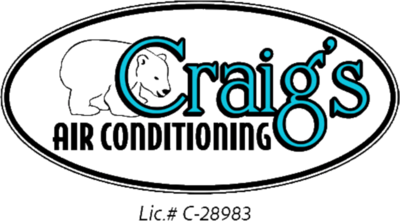Why Is My AC Freezing Up?
Air conditioning is crucial for comfort, especially in regions with sweltering heat. When your AC unit starts freezing up, it can be frustrating and confusing. This article explores common reasons why air conditioners freeze up and provides solutions to help you avoid this issue in the future.
Understanding How AC Units Work
Before diving into why AC units freeze up, it’s essential to understand how the air conditioning system operates.
Air conditioners circulate refrigerant between an indoor evaporator coil and an outdoor condenser coil within the air conditioning unit. The refrigerant absorbs heat from the indoor air and releases it outside, cooling your home in the process.
When something disrupts this cycle, like a malfunction or blockage, ice can form on the evaporator coil.
How to Tell if Your AC is Freezing Up
Ice on the Coils or Pipes
Visible ice on the indoor evaporator coils or the pipes leading to the outdoor unit indicates freezing issues.
Warm Air from the Vents
If your AC is blowing warm air instead of cold, it could be because of frozen coils that hinder the cooling process.
Water Leaks
As the ice melts, you might notice water leaking from the indoor unit, which can damage your home and indicate a freezing issue.
Poor Airflow
Restricted airflow through the vents, often accompanied by unusual noises, can signal that the AC is freezing up due to blocked or frozen components.
Common Causes of AC Freezing Up
Restricted Airflow Due To Dirty Air Filter
Airflow is crucial to the proper functioning of your AC. Insufficient or blocked airflow, typically caused by dirty air filters, blocked vents, or dirty evaporator coils, can lead to freezing.
When airflow is limited, the evaporator coil can become too cold, leading to ice formation. This insufficient airflow over the evaporator coils, especially due to a dirty air filter or a malfunctioning blower fan, can cause uneven cooling, strain on the system, higher humidity levels, and potential health concerns.
Solution: To maintain proper airflow and prevent the air conditioner from freezing up, regularly clean or replace dirty air filters, keep vents clear, and schedule maintenance to clean evaporator coils and check the blower fan for any issues. Changing a dirty air filter not only prevents restricted airflow but also improves indoor air quality and energy efficiency.
Low Refrigerant Levels
Refrigerant plays a key role in the cooling process. If the refrigerant level is low, it can cause the evaporator coil to become excessively cold, leading to a situation where your air conditioner freezes.
Solution: If you suspect your refrigerant levels are low, contact an HVAC technician to inspect and refill them if needed. This is crucial not only to prevent the issue where your air conditioner freezes but also to ensure optimal energy efficiency and prevent further damage to your system.
Thermostat Issues or AC Setting Too Cold
If your thermostat is set too low or isn't working correctly, it can cause the AC to cool excessively, leading to freezing.
Solution: Adjust the thermostat to a moderate temperature. If the problem persists, consider replacing the thermostat.
Fan Malfunction
The fan circulates air over the evaporator coil. If the fan is not functioning correctly, the lack of airflow can lead to freezing.
Solution: Inspect the fan and ensure it is operating correctly. If the fan is malfunctioning, a professional technician can help fix or replace it.
Why is My Brand-New AC Unit Freezing Up?
If you recently got your system installed, you shouldn't notice your system freezing up. This could suggest that the installer put too much Freon or refrigerant, causing excessive cooling. If not, the new system or one of the issues mentioned earlier might need addressing or replacement.
How to Fix Your AC Unit from Freezing Up
Turn Off the AC: Allow the ice to melt before attempting any repairs or troubleshooting.
Check for Airflow Issues: Inspect the air filters and vents to ensure they are clean and unobstructed. Proper airflow is essential to preventing freezing.
Monitor Refrigerant Levels: If you suspect low refrigerant, call a professional HVAC technician to inspect and refill the system.
Adjust the Thermostat: Set the thermostat to a moderate temperature to prevent overcooling. If the problem persists, consider replacing the thermostat.
Check the Fan: Ensure the fan is functioning correctly to maintain proper airflow over the evaporator coil.
Preventive Measures to Avoid Freezing
Regular Maintenance
Regular maintenance is key to preventing AC freezing issues. Scheduling routine check-ups with an HVAC professional ensures that your system remains in optimal condition. Part of this maintenance includes ensuring the blower fan effectively circulates cool air throughout the house, which is crucial for preventing freezing by maintaining proper system operation.
Monitor the Thermostat
Keep an eye on your thermostat settings and adjust them according to your comfort needs. Avoid setting the temperature too low, as this can contribute to freezing issues.
Check Air Filters Regularly
Dirty air filters are a common cause of airflow issues. Ensure that you are checking and replacing the air filters at least once a month.
Inspect the Ductwork
Leaks or obstructions in the ductwork can impact airflow and contribute to freezing issues. Regular inspections and sealing of any leaks can help maintain proper airflow.
When to Call a Professional
If your AC continues to freeze up despite your best efforts, it's time to call a professional. Persistent freezing issues could indicate underlying problems requiring expert diagnosis and repair.
Conclusion
An air conditioner freezing up can be frustrating. However, understanding the causes and solutions can help you prevent and resolve this issue.
Regular maintenance, monitoring your thermostat, and ensuring proper airflow are key factors in keeping your AC functioning smoothly.
If problems persist, consulting a professional ensures your system receives the necessary care and repair.
Frequently Asked Questions
-
Both indoor and outdoor AC units can freeze up due to airflow issues, low refrigerant levels, or malfunctioning components.
-
Low refrigerant, restricted airflow, or other technical issues typically cause freezing pipes or coils.





